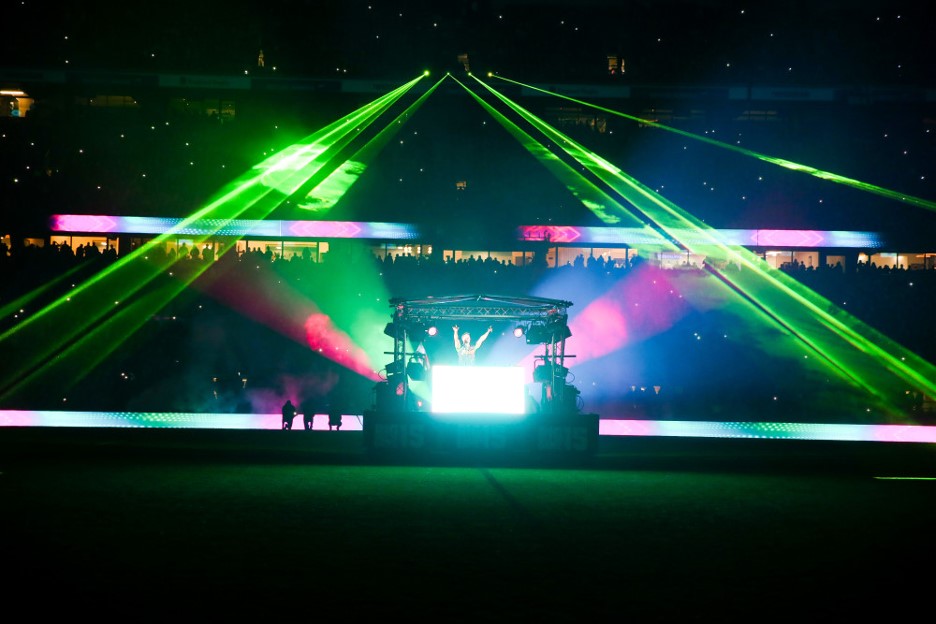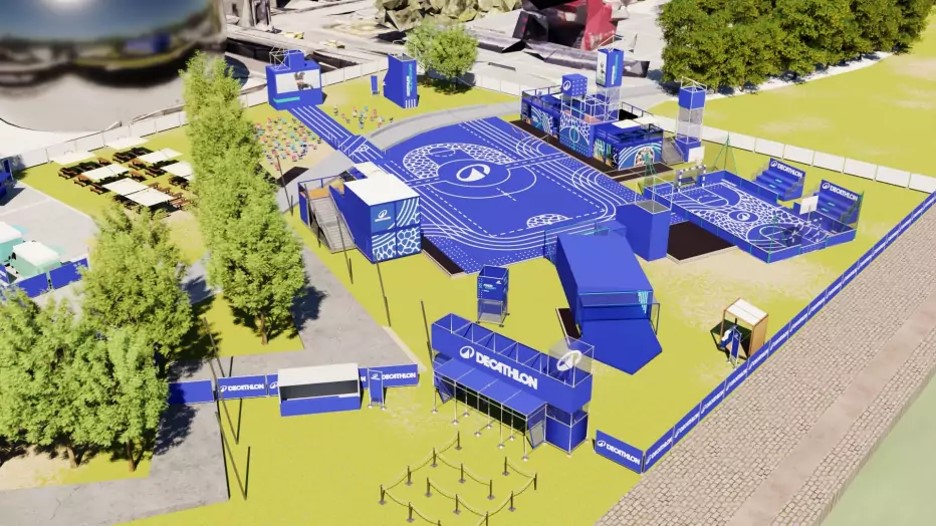
Women’s Aid launches groundbreaking campaign
The powerful ‘The Monster Who Came to Tea’ campaign from House 337 urges the government to re-evaluate funding for domestic abuse support services.

With the Olympics spellbinding TV audiences worldwide, Lucy Bairner delves into the art of experiential marketing from the world of sport

As a nation, we collectively held our breath in June as the last few seconds of added time ticked away at the Euros final. Alas, the final whistle was blown and the hope that started to creep into our minds quickly dissipated - replaced with the familiar sinking feeling of disappointment. We all knew it wasn’t coming home. But we hoped.
Now it’s the turn of the Olympics: capturing the contagious excitement of athletes and fans worldwide.
That’s the thing about sport. It has this unparalleled ability to unite people, transcend boundaries, and ignite passions - to sweep us up in euphoria and bring us together in despair. It possesses a unique power to supercharge emotions and foster deep-rooted fandom.
It’s probably the best example there is of the might of experiential marketing and brands are tapping in - using activations to cut through with creativity and opportunism. Uber, for instance is offering Uber Boat cruises for free in Paris, Airbnb offered two fans the chance to stay in the Museé d’Orasy on Opening Ceremony night. Using experiences to leverage their messages at this global sporting event - smart
There’s a dynamic shift in how we’re engaging with our favourite pastimes, and it’s worth exploring what brands can learn from experiential marketing and sport to enhance allure and accessibility, beyond existing fanbases, i.e., customers.
The power of sport lies in its ability to unite, inspire, and entertain.
Lucy Bairner, Head of Growth, Collaborate Global
In the realm of sports, entertainment is king. Yet, to capture the attention of newer, diverse audiences, traditional sport is evolving. Much as brands are pivoting to remain relevant.
Premiership Rugby took its cue from the NFL fanfare and adapted its offering away from clichéd Twickenham 90’s flat caps and tweed jackets towards a more family-orientated audience.
The focus is not just the game, but the entire fan experience; from free funfair rides in the fan village, to fireworks as teams enter the pitch, to half-time performances from pop stars - and people are enjoying much more entertainment for their ticket price. A classic experiential marketing approach, where every touchpoint —before, during, and after the event—is crafted to create memorable, engaging experiences.

Big Game entertainment at Twickenham stadium in the final match of the domestic 23/24 season between Harlequins and Gloucester
Just imagine an event that captivates you from the moment you purchase a ticket. This might mean interactive pre-game activities, enhanced digital engagement, and post-game celebrations that keep the buzz alive. By prioritising the fan experience, brands, just like sports, can convert casual customers into lifelong fans, turning occasional customers into brand advocates.
There’s a harsh reality to professional sport: sponsors are in it for the return. This is never more evident than the Tour de France. Netflix’s ‘Tour de France: Unchained’ follows top teams in the peloton competing for ultimate glory in the world’s most grueling bike race.
I was struck by the unfiltered disappointment of the Directeurs Sportifs (team managers) when a rider crossed the finish line in anything other than first place. Why? Because they’re in it for first place, not second. Because winning means a podium. Podiums mean cameras. And cameras mean global media attention, giving sponsors bang for their buck for paying millions for logos emblazoned over team jerseys.
It’s my view that sponsorship should go beyond brand placement; it should create meaningful interactions. Whether through unique, immersive experiences or value-added services, sponsors can enhance the fan journey, fostering a deeper connection with supporters.
Tell the story
In the age of digital storytelling, brands can learn much from the narrative-driven approach of experiential marketing.
Netflix’s “The Last Dance" and "Drive to Survive" demonstrate the power of storytelling to extend reach. Diving into personal journeys of athletes and behind-the-scenes drama, these documentaries amplify sport’s appeal, drawing in new audiences who might not be traditional fans.
Storytelling is making sport more relatable and engaging. It’s not just about scores and statistics; it’s about human stories that resonate on a deeper level. By amplifying these narratives, sport is turning passive viewers into passionate fans. And the same can be true for brands.
When it comes to building a die-hard, loyal and cult-like fan base, nothing compares to team sport.
It unites people, building communities around a shared passion: the team. Win, lose or draw - Manchester United’s tattoo remains on the chest forever. Brands need to tap into this feverish desire. Imagine being able to cultivate that same fan community for products and services.
Experiential marketing thrives on creating memorable, shareable experiences and sport is getting it right.
Fan zones offer up a carnival-like atmosphere where fans gather, celebrate, and immerse themselves in a sport they love. Watch-alongs bring fans together to view the game on big screens or online forums, with a shared experience that amplifies excitement and camaraderie.
Initiatives like these play into our innate human desire for connection, making the sporting experience more engaging and fun. Decathlon has done this brilliantly by creating an Olympic playground at the heart of the Paris games bringing fans closer to the action with artists, big screens, DJ’s and live performances.

The Decathlon Playground
By making experience central to strategy, sports teams are fueling fandom. It’s creating environments where fans actively participate, celebrate, and share a passion. Brands take note.
The power of sport lies in its ability to unite, inspire, and entertain. All a north star for marketers.
Sport is experiential marketing at its very best – successfully evolving to meet the demands of modern audiences. It’s telling compelling stories, creating memorable, immersive experiences resonating emotionally, turning spectators into passionate fans, captivating and uniting us for generations to come.
Sport plays a central part of our cultural fabric and intends to stay there. It’s a smorgasboard of delight for brands everywhere.
As a result of a highly successful growth period, global experiential agency Collaborate has recently promoted Lucy, formerly Head of Growth, to Client Experience Director. In this newly created role Lucy is now leading client relationships across Collaborate’s brand partners includIng Aston Martin, SKY, eBAY, Hyundai, JD Sports, Charlotte Tilbury and Louis Vuitton. She is a creative, results driven marketeer with extensive experience of building successful brands through strategic thinking, planning and cut-through ideas. In marketing leadership roles, Lucy has worked for Red Bull and Goodwood as well as founding start-up brand LUMO Clothing Ltd.
Looks like you need to create a Creativebrief account to perform this action.
Create account Sign inLooks like you need to create a Creativebrief account to perform this action.
Create account Sign in